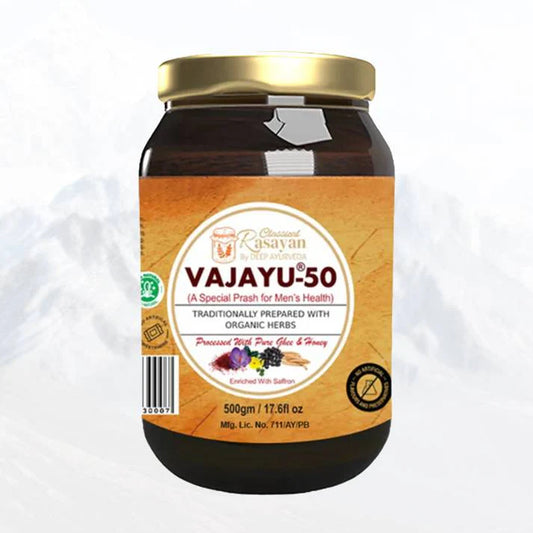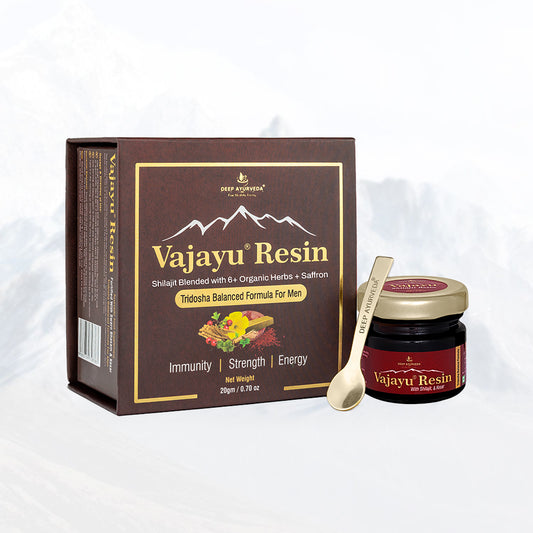Introduction
In a world where lifestyle disorders, chronic diseases, and stress-related illnesses are increasing at an alarming rate, the focus of healthcare is shifting from curative medicine to preventive health. People no longer want to wait until disease takes over—they are searching for holistic, safe, and sustainable methods to stay healthy. This is where Plant-Based Ayurveda comes into the spotlight.
Ayurveda, the 5000-year-old Indian system of medicine, emphasizes the preservation of health (Swasthasya Swasthya Rakshanam) before treating disease. At the same time, plant-based medicine is gaining recognition worldwide for its ability to heal, nourish, and prevent diseases naturally. Together, they form the perfect synergy for the future of preventive healthcare.
In this blog, we explore why Plant-Based Ayurveda is emerging as the future of preventive health and how it integrates ancient wisdom with modern needs.
Preventive Health: A Global Priority
Modern healthcare has achieved remarkable progress in treating acute illnesses. Yet, lifestyle-related diseases such as diabetes, hypertension, cardiovascular disorders, obesity, and autoimmune conditions are on the rise. The World Health Organization (WHO) emphasizes the importance of preventive health strategies to reduce the global burden of disease.
Preventive health focuses on:
-
Strengthening immunity
-
Maintaining balance in body and mind
-
Adopting healthy diet and lifestyle
-
Using natural therapies to avoid chronic illness
This philosophy is deeply embedded in Ayurveda, making it one of the most effective preventive systems of medicine.
Ayurveda and Plant-Based Medicine: A Timeless Union

Ayurveda views plants as living medicines gifted by nature. Every herb has unique properties—some nourish tissues, others detoxify, some balance doshas, and others rejuvenate the body. Unlike synthetic drugs that often target a single symptom, Ayurvedic plant-based remedies work holistically to balance the root cause of disease.
The Ayurvedic pharmacopeia includes:
-
Rasayana (rejuvenating herbs): Amla, Ashwagandha, Shatavari
-
Deepana-Pachana (digestive herbs): Ginger, Cumin, Triphala
-
Immunomodulatory herbs: Giloy, Tulsi, Neem
-
Stress-relieving herbs: Brahmi, Shankhpushpi, Jatamansi
By focusing on prevention through herbs, diet, and lifestyle, Ayurveda becomes the ultimate plant-based preventive system.
Science Behind Plant-Based Ayurveda
Modern research validates the Ayurvedic approach to plant-based healing. Herbs contain bioactive compounds such as alkaloids, flavonoids, tannins, and polyphenols that:
-
Act as antioxidants – Reducing oxidative stress and cellular damage.
-
Regulate inflammation – Preventing chronic inflammatory disorders.
-
Balance metabolism – Supporting glucose and lipid levels.
-
Enhance immunity – Strengthening defense against infections and autoimmunity.
-
Improve mental health – Calming the nervous system and balancing hormones.
This scientific validation shows why Ayurvedic plant-based herbs are powerful preventive tools for the modern world.
Why Plant-Based Ayurveda is the Future of Preventive Health
1. Natural and Side-Effect Free
Unlike synthetic drugs that may cause adverse effects with long-term use, plant-based Ayurvedic remedies are gentle and safe when used properly. This makes them ideal for preventive health, which requires long-term and sustainable practices.
2. Holistic Approach to Wellness
Plant-based Ayurveda does not merely suppress symptoms; it restores balance of doshas (Vata, Pitta, Kapha), strengthens digestion (Agni), and detoxifies the system. Preventive health requires exactly this kind of root-level balance.
3. Immunity Building and Disease Resistance
Herbs like Amla, Giloy, and Tulsi enhance the immune response, making the body resilient against infections, seasonal illnesses, and lifestyle-related diseases. This natural immunity is the foundation of preventive medicine.
4. Supports Modern Lifestyles
Stress, poor diet, and irregular routines are the major causes of modern diseases. Herbs like Ashwagandha and Brahmi reduce stress, while Triphala and Ginger improve digestion. These help people maintain health even amidst fast-paced lifestyles.
5. Eco-Friendly and Sustainable
The future of healthcare must also be environmentally responsible. Plant-based Ayurveda promotes eco-friendly, renewable healing methods compared to synthetic drug production, making it a sustainable choice for generations to come.
6. Integration with Modern Preventive Medicine
Plant-based Ayurveda complements modern science. For example, while modern preventive medicine emphasizes diet, exercise, and vaccines, Ayurveda strengthens this approach with herbal tonics, detox therapies, and daily regimens (Dinacharya). Together, they form an integrated model of future healthcare.
Top Plant-Based Ayurvedic Herbs for Preventive Health
Ashwagandha (Withania somnifera)
-
Reduces stress and fatigue
-
Improves immunity and strength
-
Prevents lifestyle disorders linked to chronic stress
Amla (Emblica officinalis)
-
Richest source of Vitamin C
-
Delays aging and enhances skin health
-
Strengthens immunity and digestion
Turmeric (Curcuma longa)
-
Curcumin reduces inflammation
-
Prevents arthritis, cancer, and cardiovascular diseases
-
Acts as a universal preventive spice
Tulsi (Ocimum sanctum)
-
Adaptogen that reduces stress
-
Prevents respiratory infections
-
Balances blood sugar and immunity
Giloy (Tinospora cordifolia)
-
Known as Amrita (the nectar of immortality)
-
Prevents recurrent infections
-
Balances all three doshas
How to Incorporate Plant-Based Ayurveda into Daily Life
-
Start the Day with Herbs – Tulsi tea, ginger water, or warm turmeric milk.
-
Use Preventive Formulations – Chyawanprash, Triphala, or herbal tonics.
-
Infuse Cooking with Healing Spices – Turmeric, cumin, coriander, and fenugreek.
-
Adopt Dinacharya (Daily Regimen) – Oil pulling, yoga, and herbal drinks.
-
Seasonal Detox with Herbs – Panchakarma therapies with herbal support.
By integrating these simple practices, preventive health becomes part of daily living.
The Global Shift Toward Plant-Based Ayurveda

The wellness industry is witnessing a massive shift towards natural healing. Plant-based diets, herbal supplements, and Ayurvedic therapies are becoming mainstream. From athletes to corporate professionals, more people are choosing Ayurveda for prevention, performance, and longevity.
International research institutions are actively studying Ayurvedic herbs for chronic disease prevention. This growing acceptance ensures that Plant-Based Ayurveda will continue to lead the future of preventive health worldwide.
Conclusion
Preventive health is the need of the hour, and Plant-Based Ayurveda provides the perfect answer. By blending ancient herbal wisdom with modern scientific validation, it offers a holistic, sustainable, and effective path to wellness.
Herbs like Ashwagandha, Amla, Turmeric, Tulsi, and Giloy prove that nature has already provided everything required for health preservation. As the world embraces preventive medicine, Plant-Based Ayurveda is set to become the cornerstone of future healthcare, ensuring that humanity not only lives longer but also healthier, more balanced lives.







